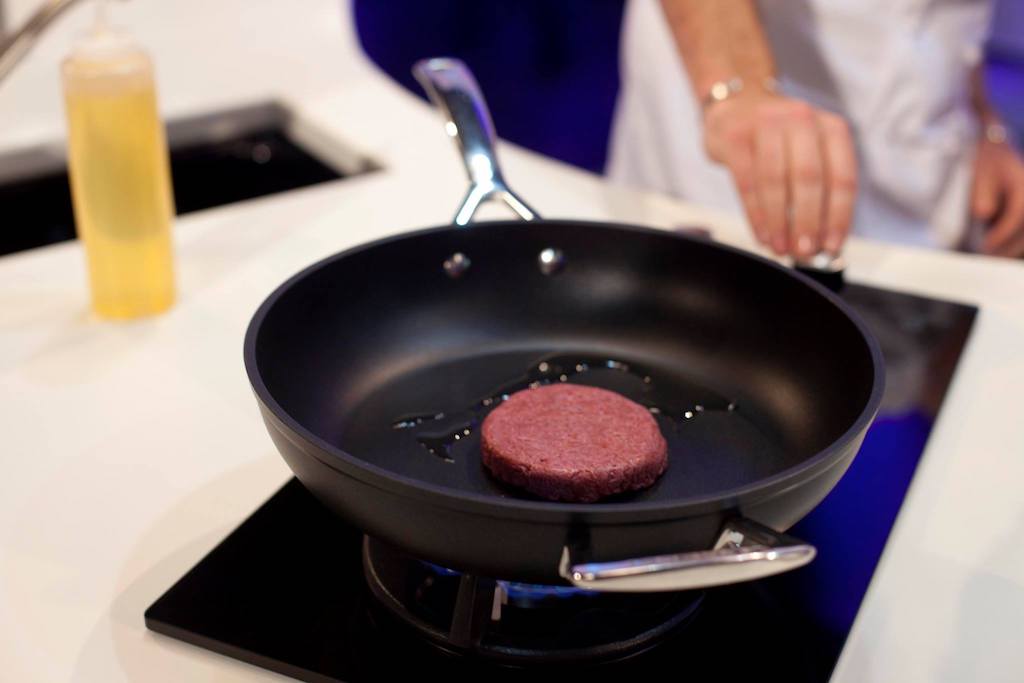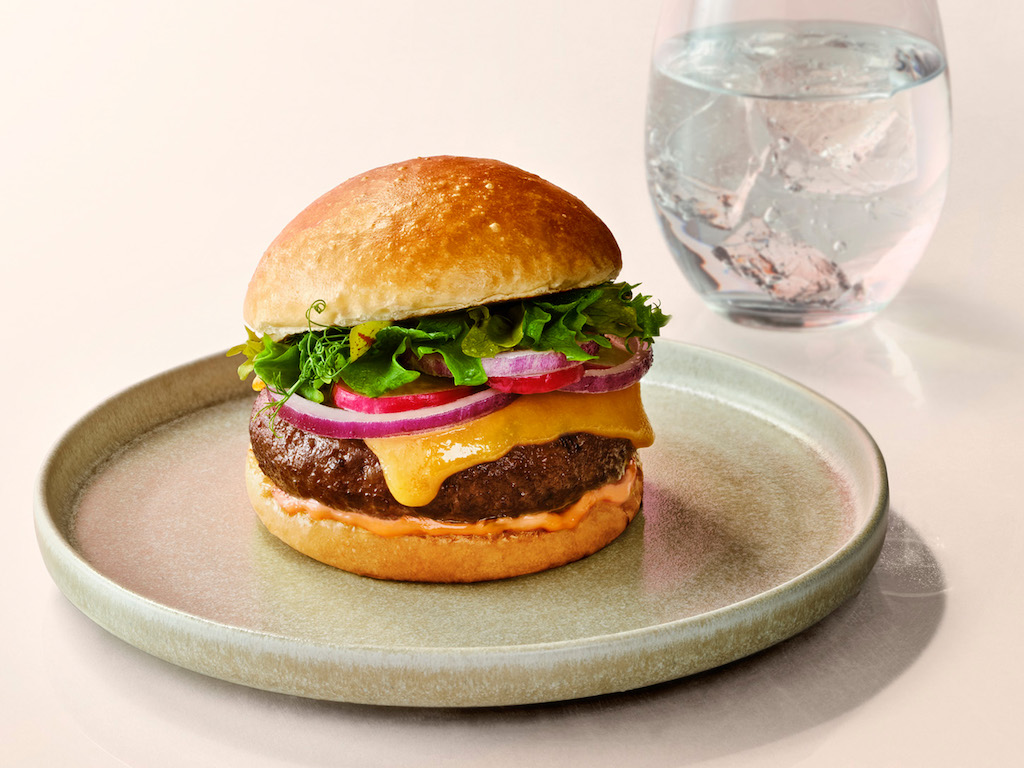Leonardo DiCaprio-Backed Mosa Meat Becomes World’s First B Corp Cultivated Meat Company, Eyes Regulatory Approval
4 Mins Read
Dutch cultivated meat pioneer Mosa Meat has announced that it has become the first cultivated meat company in the world to attain B Corp certification, in what the company calls a significant milestone for its sustainability commitments. It also confirmed that it’s planning to apply for regulatory approval in countries across the world.
Mosa Meat, which became famous in 2013 after producing the world’s first cell-based beef burger, says the B Corp Certification validates its mission to “fundamentally reshape the global food system”. It showcases the alt-protein leader’s environmental and social credentials, as well as its commitment to accountability, transparency and leadership in propelling economic systems change.
Explaining why obtaining the coveted sustainability certification was important to the company, CEO Maarten Bosch told Green Queen: “We are proud to be pioneers in this industry, but that also comes with a continued responsibility to lead by example. Profit and purpose can go hand-in-hand if socially conscious businesses light the path, and we feel that B Corp gave us a great framework to do just that.”
Actor-turned-environmentalist Leonardo DiCaprio, who became an investor-advisor to Mosa Meat in 2021, said of the announcement that the company “continues to be a champion for change. I am proud to see Mosa Meat be the first cultivated meat company in the world to become B Corp Certified and hope it is the first of many.”
Bosch added: “DiCaprio’s work to bring about positive change for the planet is closely aligned with our mission at Mosa Meat”.”
Becoming B Corp Certified

To become B Corp Certified, companies are evaluated on various criteria ranging from environmental practices and governance to worker welfare and supply chain transparency. After over a year of thorough evaluation, Mosa Meat became a B Corp on two Impact Business Models (IBMs). Resource Conservation acknowledges products that reduce the use of resources like water and energy, while Mission Locked recognises companies that protect their ability to consider stakeholders (not just shareholders) in corporate decision-making.
For an IBM certification, businesses need to show specific, material, verifiable, lasting and extraordinary principles. While the B Corp process is selective enough for companies to go through, gaining an IBM accreditation is said to be even more challenging.
Focusing on beef over other types of meat first, Mosa Meat removed the controversial fetal bovine serum from its cultivated meat in 2022. It claims to use 100% renewable energy at its production facilities – which include the world’s largest cultivated meat plant, opened in May. According to a peer-reviewed lifecycle assessment, cell-cultured beef has been found to reduce climate impact by 92% and air pollution by 94% compared to conventional beef. Moreover, the former uses 95% less land and 78% less water.
When it unveiled its cell-based beef in 2013, the two burger patties cost over $330,000. But Mosa Meat, which has raised a total of $96M in funding, managed to slash the prices of its animal-free fat medium by 65 times in 2021. The same year, it received a €2M grant from the EU to help reduce production costs by 100-fold and earlier this year, the company announced a collaboration with its investor Nutreco to develop a cell feed supply chain to further bring cultivated meat prices closer to parity with its conventional counterpart.
‘Laser-focused’ on cultivated beef

Currently, Bosch said Mosa Meat is “laser-focused” on beef due to its role in addressing climate change: “Our goal is to get to market with a delicious burger that even hardcore carnivores would be happy to eat.” He added that the company is working on “getting production costs down at our newly opened facility, and building strategic partnerships for market entry”.
Speaking to Green Queen about next steps and future plans, Bosch confirmed that Mosa Meat is actively pursuing regulatory approvals around the world, including “North America, Asia, Europe, the UK and more”. Singapore and the US are the only two countries in the world that have approved the sale of cell-cultured meat, while Israel’s Aleph Farms became the first cell-based meat company to file for clearance in Switzerland and the UK earlier this year.
“We’re engaging policymakers at the national and international levels to encourage the enabling conditions necessary to foster thriving cellular agriculture ecosystems,” said Bosch. Last December, the Dutch company urged governments to support the growth of cultivated meat as a solution to beef’s climate impact. “More work is needed to create coherence between public policy goals, especially related to climate change and regulatory regimes that efficiently foster innovative solutions.”



